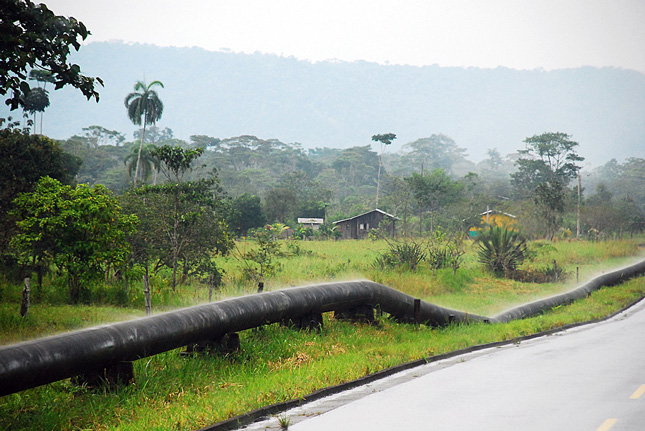-
Nick Snow, Oil and Gas Journal
Analyst Urges Broader Look at Amazon Oil’s Local Impacts
March 27, 2014 By Wilson Center Staff
Increasingly disruptive protests are likely if oil, gas, and mining companies and national governments don’t pay closer attention to indigenous populations’ needs as Western Amazon basin resources are developed, an expert warned.
“They usually are ignited by past grievances that have not been resolved,” said Patricia I. Vasquez, an independent analyst who previously was a Jennings Randolph Senior Fellow at the US Institute for Peace, at a March 21 launch of her new book, Oil Sparks in the Amazon: Local Conflicts, Indigenous Populations, and Natural Resources.
“The Amazon is obviously a very challenging place with a unique environment and lack of infrastructure,” Vasquez said during the event at the Woodrow Wilson International Center for Scholars. “There also are large numbers of indigenous people who are poor and marginalized, especially compared to the nonindigenous population. A strong political commitment is required to resolve these conflicts.”
In her book, Vasquez said she examined 55 such conflicts in Peru, Ecuador, and Colombia from 2004 through 2011 when a period of high crude oil prices and strong demand brought investors to an area previously considered to be economically marginal.
Continue reading in the Oil and Gas Journal.
Photo Credit: A portion of the Oleoducto de Crudos Pesados pipeline, courtesy of flickr user guenno.
Topics: Colombia, development, economics, Ecuador, energy, environment, environmental security, forests, Latin America, natural resources, oil, Peru, poverty, security, video
 A Publication of the Stimson Center.
A Publication of the Stimson Center.



